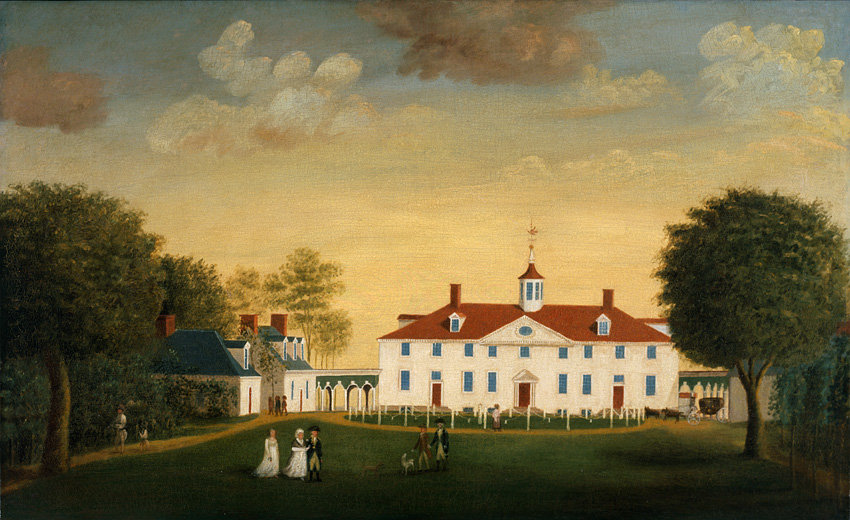As head of household, plantation owner, businessman, Revolutionary War general, and president, George Washington had many different concerns and responsibilities, from running his estate to ensuring the stability of a new nation. Alongside the traditional demands of political life and military leadership, he focused considerable attention on the health and safety of his family, staff, slaves, and troops.
Washington’s status and wealth gave him—and his community—special privileges. During his lifetime, with the practice of medicine slowly becoming a licensed profession, he could call on a growing class of experts and new knowledge about the spread and prevention of disease. Even so, Washington, like everyone else of his era, encountered the limits of medicine when faced with serious illnesses.
George Washington, Gilbert Stuart, ca. 1798
Courtesy Mount Vernon Ladies’ Association
During Washington’s life (1732–1799), medicine in America followed the practices of England. These practices were defined by speculative hypotheses, domestic remedies, and the beginnings of scientific investigation and formal education.
The Family Physician, and the House Apothecary, a popular book of treatments for the layperson, Gideon Harvey, ca. 1678
Courtesy National Library of Medicine
Like others in the 18th century who needed medical assistance, Washington relied on a combination of home health remedies, common sense, herbal treatments, and medical science, as dispensed by an array of doctors, surgeons, dentists, barbers, apothecaries, nurses, midwives, and the occasional charlatan or quack. He turned to medical advice found in the books in his library, and ordered an assortment of common and patent medicines for his family, staff, and slaves.
The West Front of Mount Vernon, attributed to Edward Savage, ca. 1787–1792
Courtesy Mount Vernon Ladies’ Association
Washington was concerned about the health of everyone living on his estate. In 1799 there were family members, hired staff, and 316 slaves.






